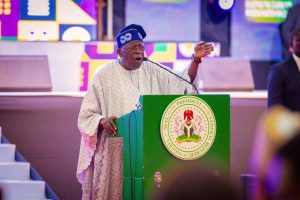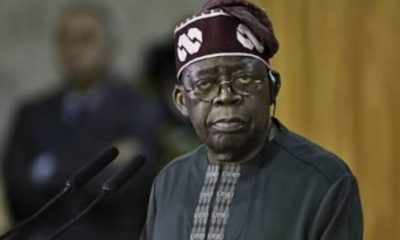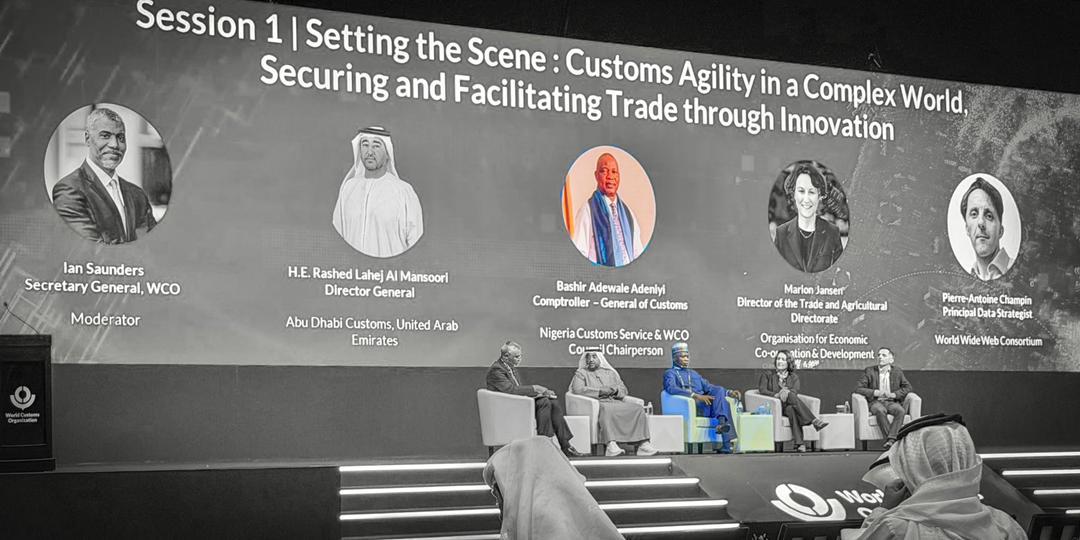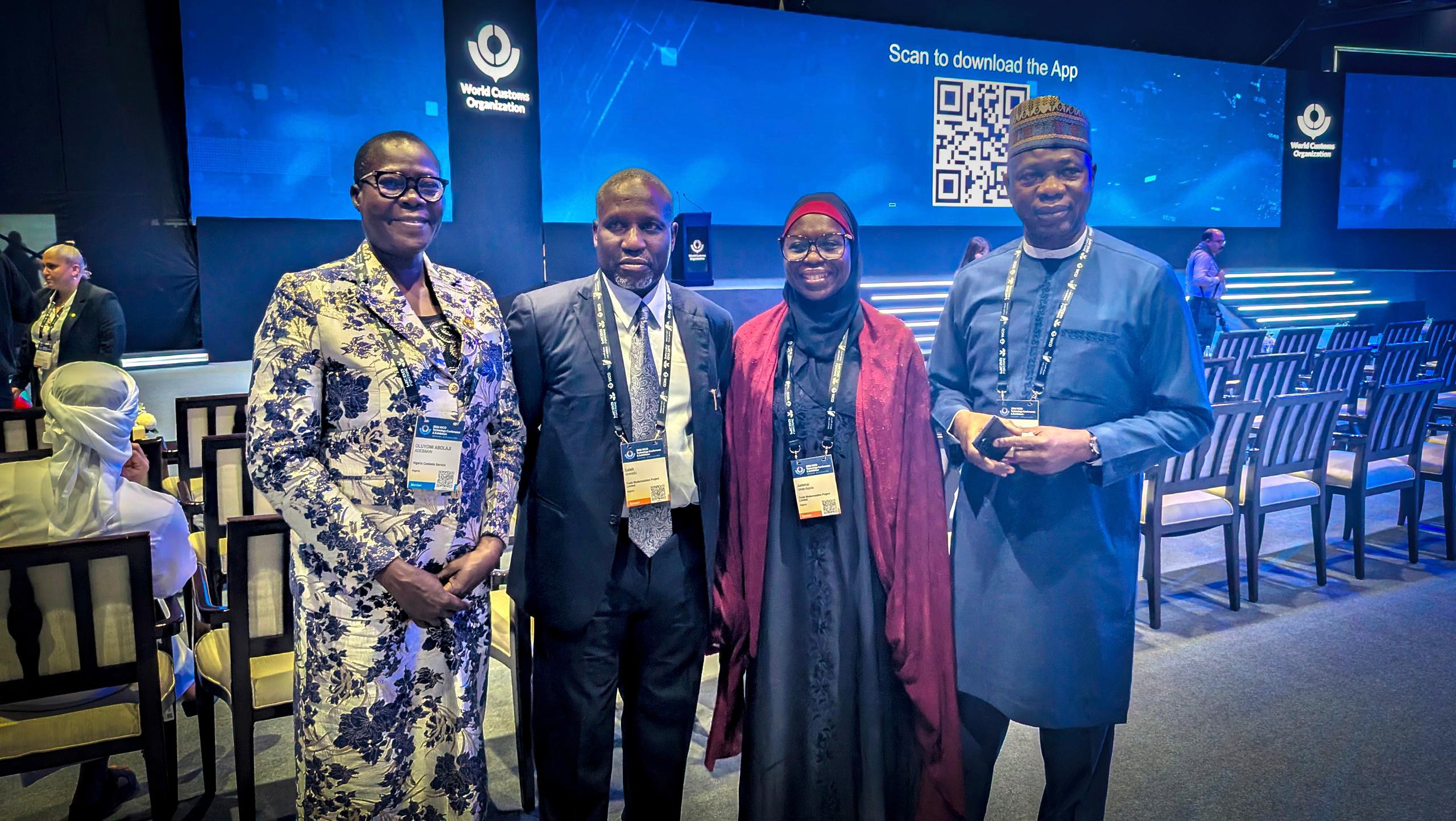Uncategorized
Tinubu Sets 3-year Economic Revival, 50 million Jobs Target

Tinubu Sets 3-year Economic Revival, 50 million Jobs Target
…Perform or be fired, Presidency warns ministers
An economic revival plan aimed at ensuring a new lease of life for Nigerians was released yesterday by the Federal Government.
The plan includes bold economic reform, borrowing avoidable, foreign and domestic investment drive, restoration of national security, food security, job creation, and promotion of accountability.
President Bola Tinubu who reiterated his commitment to economic revitalization said he will not permit indolence or any act capable of derailing his ‘Renewed Hope Agenda’ by any of his ministers.
He gave a marching order to the 45-member of the Federal Executive Council (FEC) to perform or be ready to be fired for incompetence.
The president, who presided over his administration’s maiden FEC meeting at the Council Chambers of the Presidential Villa, Abuja, advised the ministers to brace up for the challenges of governance.
Five ministers-Olawale Edun (Finance and Economy), Mohammed Idris (Information and National Orientation), Dr. Ali Pate (Health and Social Welfare), Abubakar Kyari (Agriculture and Food Security), and Doris Anite (Industry, Trade and Investment) and Special Adviser to the President on Media and Publicity, Ajuri Ngelale-shed light on how they will achieve the president’s eight-point agenda.
Anite said President Tinubu was targeting 50 million jobs or Nigerians in fulfilment of his campaign promises during the electioneering.
Edun said although President Tinubu inherited a bad economy, concerted efforts will be made to change the tide.
The president, who highlighted the challenges before the ministers, charged them to gird their loins.
He alluded to the priority areas, which were emphasised in his economic programmes, urging them to embrace activities that will enhance service delivery and prevent failure.
President Tinubu said the country relied on the minister’s skill, intellect, and networking, adding that they were appointed to make a difference.
He said: “As I said during the inauguration, I am the bus driver and you are the conductors. We have to make sure this country stays on the right path to succeed on behalf of over 200 million Nigerians. We willingly accepted the appointment and I accepted the mandate of Nigerians.
“I have delegated some of these powers to you to serve the country. You are a very lucky person to be selected among millions of Nigerians and we will use the opportunity to show that Nigeria has what it takes to dig ourselves out of our problems.
“We must find a home-grown re-engineering of our finances, manage our resources and let the economy work for the people of this country.
“There are so many things some cynics will say is impossible, but in your dictionary of service, everything is possible and must be possible. We have the talents; we have the level of intellectual capacity to turn this country around.
“You and I know that the expectation is high and it’s a tough time right now. We must work hard, commit ourselves and create a buoyant economy that will serve every Nigerian. We have an employment level that is unacceptable. We are threatened by climate change. We still have underemployment.
“But to turn things around, you have been selected to perform your utmost best. The policy agenda will be set out to reform the economy to deliver sustainable and inclusive growth, and strengthen national security for peace and prosperity. Without security there can be no investment. That is true. You have to convince them and the time is now to do that.
“When you look around the world, every leader is clamouring for what they believe on what should be there policy on food security. We have declared a state of emergency. What is your goal?
“Every one of you is a member of this team, every one of you, no partitioning. We can do whatever we want from the assignment of responsibility, but all depends on you, if you stay focused, we will all arrive at a better destination and the country will be better off for it.”
He added: “We must unlock the energy and natural resources of this country. We must start producing for ourselves, and dig ourselves out of the hole. We must focus on education, healthcare and social investment that is essential for the development of our people.
“Our priority areas are defined in our economic programmes. Every area is our priority and you belong in the driver’s position to realize and make that priority a fulfilling promise to the entire nation and the continent of Africa.
“You must achieve the economic growth that is expected of us. We must feed our people. We must leverage on what we have and grow more to satisfy Nigerians. It is all in your hands now.”
President Tinubu said he was prepared to listen to the ministers whenever they have concerns.
He stressed: “I am ready to listen. Like I said to NBA yesterday, I am ready even for corrections; only God is perfect. Don’t be afraid to take decisions. That’s the burden of leadership. I know some of you are still looking for offices. I believe the SGF, COS, HOSOF will work as a team to settle you down quickly.”
Drawing a pictorial analogy of the task before the government, Tinubu said: “Imagine yourselves that in this situation you have been called upon to fetch water from a dry well. The challenges are there, but we will deliver for Nigerians”.
Edun told reporters that he presented a “Roadmap for the Economy,” noting that the FEC agreed that the economy is not where it ought to be.
He also said that FEC examined eight priority areas and identified targets to deliver in the next three years, adding that the President had charged the ministers to roll out policies and programmes to turn the economy around.
Edun stressed: “First, he congratulated everybody and emphasised the high expectations of Nigerians and he encouraged us to be bold and courageous and innovative and to act with urgency in delivering a better life to all Nigerians.
“Essentially, we went through an exercise of looking at where things stood, regarding the economy, the growth rate, the exchange rate, inflation, unemployment and so on.
“The overriding conclusion is that we’re not where we should be and we also examined the President’s eight-point agenda, that is, the eight priority areas for moving the Nigerian economy forward and for delivering to Nigerians and those are basically food security; ending poverty, economic growth and job creation, access to capital, particularly consumer credit, inclusivity in all its dimensions, particularly as regards youths and women, improving security, improving the playing field on which people and particularly companies operate, rule of law, and of course, fighting corruption.
“It is around those matrix that the plans and the targets of what will be delivered in the next three years or so were identified, discussed and imputs were given by various ministers and we’ll now go away with the marching order to refine further the targets in particular and within weeks to start rolling out policies and programmes to turn around the economy and make things better for all Nigerians. That really is the substance of what the discussion was all about.”
Edun said the Tinubu administration inherited a bad economy with an unacceptable high rate of unemployment, and with inflation standing at 24%.
He said:“Per capital has fallen steadily, inflation is at 24 percent, unemployment is high, you know m are rebasing the way in which it’s calculated. Either way, it is high and youth unemployment is even unacceptably high, these are the key metrics that we have met.”
Asked to be specific on the kind of economy the Tinubu administration met on ground, the inister said: “We met a bad economy and the promise of Mr. President is to make it better”.
The Minister said the Federal Government would in not borrow money at this time, adding the emphasis is on how to create a macroeconomic environment where both local and foreign investors will invest and increase production.
Edun said: “Clearly, the Federal Government is not in a position to borrow at this time. Rather, the emphasis has to be on creating a stable, macroeconomic environment. Stable inflation, stable exchange rate, an environment within which people can come and invest and thereby increase production and further grow the economy; Improve and create jobs and reduce poverty.
“So, the aim of all reforms at this time is to focus on what we call equity to focus on investment to attract investment investment by Nigerians. Investment by foreign direct investors and even investment by portfolio investors that want to invest in the financial aspects of the Nigerian economy, such as the stock market, such as the bond market.
“So, that is the plan. That is the expectation and it is that there will not be a reliance on borrowing. Rather, as revenues increase, as the benefit of removing fuel subsidy and the subsidy on the exchange rate, those mean more money for government at all levels.
“Because, of course, through oil revenue, the federation earns dollars and if those dollars are feeding through, at let’s say, 700/750 or so naira to one dollar as opposed to 460 where it was before; clearly, that is repairing the finances of government are federal state and local government levels.”
Anite said President Tinubu was planning to create 50 million jobs.
She stressed: “In Mr. President’s manifesto during his campaigns, he promised 50 million jobs and that’s our target. We will take it in phases; we are looking at different sectors of the economy that will contribute to this job creation chief among them is the creative industry and the digital economy, and then the agric sector, agro-processing zones, and mining, oil and gas. So we’re very confident that we will achieve this.”
news
Ramadan 2026: Let’s Be United, Shina Akanni Urges Muslims.

Ramadan 2026: Let’s Be United, Shina Akanni Urges Muslims.
As Muslims all over the world begins the 30 days compulsory fasting and prayer today,top Fuji Musician Aare Sir Shina Akanni Aroworeyin Scorpido has congratulates them for witnessing another month of Ramadan.
Akanni advised them to follow the teachings of the the Holy Prophet Muhammad (SAW) which is peaceful co existence among themselves and their neighbor ‘because Islam is Religion of peace”.
He said the month of Ramadan is an holy month therefore Muslims should try as much as they can to maintain peaceful coexistence among themselves and others and that they should see themselves as ambassador of peace.
While praying for Nigeria,Aare Sir Shina Akanni Aroworeyin Scorpido said he believes that there will be an economic turnaround soon because what’s is happening now are signs of thought times that never last “if we can pecevere things will get better”.
The Scorpido crooner who recently released a hip hop single titled “Magbelo” said he is currently working on a complete album which will be released before the end of the year.
Aare Sir Shina Akanni Aroworeyin Scorpido whose last album ‘ABCD” is still in hot demand said that his next album will be a pot pouri of all kinds of music because his brand of Fuji music is a blend Fuji , Hip-hop,Apala ,Highlife and others.
Uncategorized
The Enemies Within: Jonahs Are Not Manageable — Dr. Chris Okafor

The Enemies Within:
Jonahs Are Not Manageable — Dr. Chris Okafor
…….“To remove Jonah, you must bring Jesus into the matter.”
When a “Jonah” enters a person’s life, confusion, gossip, blackmail, betrayal, and the pull-him-down syndrome often follow. But the moment Jesus Christ is invited into the situation, the storm subsides and stability is restored.
This was the central message delivered by the Generational Prophet of God and Senior Pastor of Grace Nation Global, Dr. Chris Okafor, during the midweek non-denominational Prophetic Healing, Deliverance and Solutions Service (PHDS) held at the international headquarters of Grace Nation Worldwide in Ojodu Berger, Lagos, Nigeria.
The Clergyman also declared that Nothing Happens Without Spiritual Influence
In his sermon titled “The Enemies Within,” Dr. Okafor declared that nothing happens without spiritual involvement. According to him, every visible battle has an invisible root.
Referencing the biblical story of Jonah, the Man of God explained that Jonah’s presence on the ship gave access to a contrary spirit that tormented everyone onboard.
Despite the losses suffered by innocent traders and sailors, the storm persisted because of one man’s disobedience.
However, he noted that when Jesus speaks into a situation, every storm must obey. Just as Christ rebuked the storm and it ceased, so too will the storms in believers’ lives subside when He is invited into their “boat.”
*The Impact of a Jonah*
Dr. Okafor further emphasized that “Jonahs” are difficult to manage. When such individuals are present in one’s circle, progress becomes delayed.
What should ordinarily manifest quickly may be prolonged or frustrated because someone close—someone who understands you deeply—may be operating as a spiritual adversary.
He explained that negative narratives, unnecessary battles, and unexplained setbacks often begin when a “Jonah” gains access to a person’s inner circle.
*The Solution*
“To remove Jonah from the boat of your life,” the Generational Prophet declared, “you must invite Jesus Christ into the matter.”
According to him, when Jesus takes control of the boat, the plans of the enemy are overturned.
What was designed for downfall becomes a testimony. No storm or battle can succeed where Christ reigns, and the enemy is ultimately put to shame.
The midweek service witnessed a strong prophetic atmosphere, with the power of God evident through deliverance, restoration, and divine revelations.
The Generational Prophet ministered deeply in the prophetic, calling out names, villages, and addressing alleged spiritual strongholds, as many lives were reportedly restored—all to the glory of God.
By Sunday Adeyemi
Uncategorized
FROM BORDER TO MARKETS: HOW NIGERIA’S REFORMS ARE REWRITING AND MODERNISING TRADE FACILITATION By O’tega Ogra
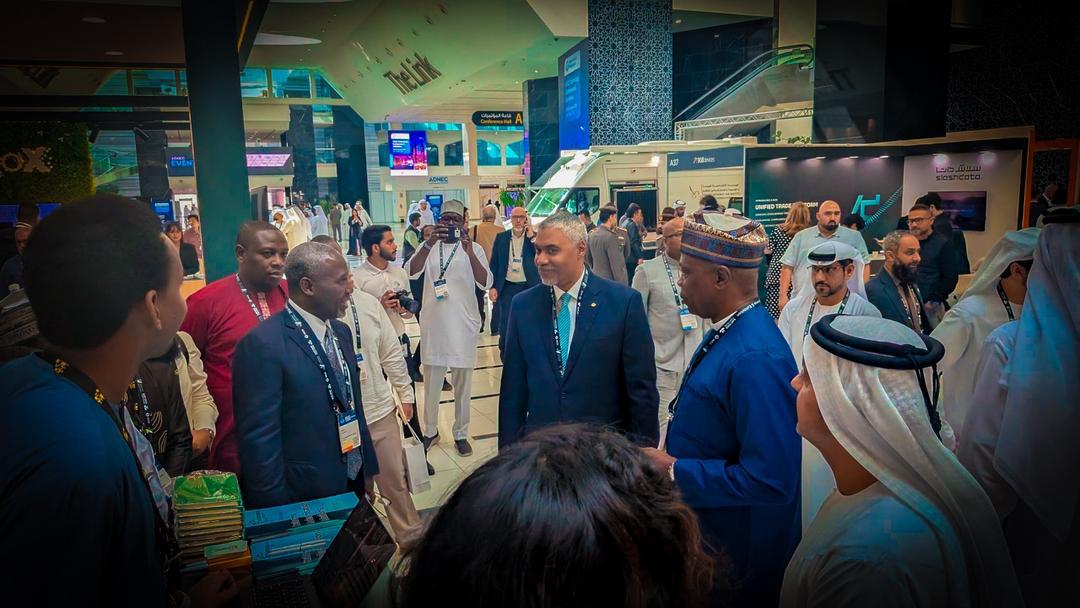
FROM BORDER TO MARKETS: HOW NIGERIA’S REFORMS ARE REWRITING AND MODERNISING TRADE FACILITATION
By O’tega Ogra
On the surface, the 2026 World Customs Organization (WCO) Technology Conference in Abu Dhabi, held in the last week of January, followed a familiar script: flags, formal sessions, carefully worded speeches. But beneath the choreography, something more consequential was unfolding. As customs chiefs and trade officials compared notes on the future of borders, Nigeria arrived not with theory, but with a working proposition.
The Nigeria Customs Service (NCS) Modernisation Project, being implemented through Trade Modernisation Project (TMP) Limited, unveiled to a global audience of customs administrators and policy leaders a window into how Africa’s largest economy is confronting one of the most complex challenges in public administration: reforming the machinery of trade while it is still running.
For decades, customs reform was treated largely as a technical exercise—frequent patches here, shoddy fixes there; new software in one corner, revised procedures in another. Nigeria’s presence in Abu Dhabi signalled something different. TMP Limited, working in partnership with the NCS, advanced the argument that trade is a cornerstone of economic development and must be supported by organic, sustainable partner ecosystems. Such ecosystems deliver speed and trust, revenue and credibility, and secure borders without stifling commerce.
That argument resonated in a room increasingly aware that global trade is no longer defined solely by tariffs and treaties, but by data, interoperability, and the quiet efficiency of systems that simply work.
The annual WCO Technology Conference has, in recent years, become a barometer for the direction of global trade governance. This year’s discussions reflected a shared anxiety: supply chains are more fragile, compliance risks are rising, and governments face mounting pressure to collect revenue without discouraging investment. Customs administrations now sit at the intersection of all three.
Nigeria’s response has been to attempt a full reset.
At the heart of this effort is the NCS Modernisation Project, implemented through a Public-Private Partnership (PPP) arrangement with TMP Limited as the concessionaire. The project seeks to replace fragmented technology deployments and manual processes within the Nigeria Customs Service with a single, integrated framework. This is anchored on B’Odogwu, a Unified Customs Management System (UCMS) that brings together cargo clearance, risk management, payments, and inter-agency collaboration. The ambition is sweeping—and so are the stakes.
Alhaji Saleh Ahmadu, OON, Chairman of TMP, framed the initiative as nothing less than an institutional reconstruction, designed to position the NCS at the forefront of global customs administration technology, aligned with international standards and assurance frameworks.
“Digital trade modernisation is not just about upgrading systems,” he told participants in Abu Dhabi. “It is about upgrading trust, predictability, and confidence in how trade flows through our borders.”
That choice of words matters. Nigeria’s economy has long struggled with the perception gap between its size and the ease of doing business. Investors cite delays. Traders complain of opacity. Government points to revenue leakages. In this context, customs reform becomes as much a credibility project as a technical one.
Saleh’s message was timely and direct: modern trade demands modern customs. Data-driven processes, automation, and risk-based controls are no longer luxuries; they are prerequisites for competitiveness in a world where capital moves faster than policy.
The institutional face of this digital transformation is the Comptroller-General of Customs, Bashir Adewale Adeniyi, who led Nigeria’s delegation to Abu Dhabi. His message reflected a subtle but important shift in how customs leadership now understands its role.
“Customs administrations today must evolve from gatekeepers to facilitators of legitimate trade,” Adeniyi said. “Nigeria’s customs modernisation project reflects our determination to place the Nigeria Customs Service at the centre of national economic transformation.”
It is a familiar refrain globally, but one that carries particular weight in Nigeria, where customs revenue remains a critical pillar of public finance. Automation, Adeniyi argued, is not about weakening control; it is about strengthening it through intelligence rather than discretion.
Risk management systems reduce unnecessary physical inspections. Integrated platforms limit human contact. Data analytics improve compliance targeting. When executed well, the result is faster clearance for compliant traders and tighter scrutiny for high-risk consignments.
In Abu Dhabi, peers from Asia, Europe, and Latin America listened closely to Nigeria’s presentation. Reforming customs in a small, open economy is one thing. Doing so in a market of over 200 million people, home to some of Africa’s busiest ports and its largest economy, is quite another.
Nigeria’s engagement emphasised that customs modernisation is embedded within a broader economic reform agenda under President Bola Ahmed Tinubu, GCFR. Simplifying trade procedures, strengthening revenue assurance, and aligning with international standards form part of a wider effort to reposition the economy for investment-led growth.
What makes the project particularly noteworthy is its insistence on end-to-end coherence. Rather than digitising isolated functions, the reform aims to connect agencies, harmonise data, and reduce duplication across government—an all-of-government approach that acknowledges an uncomfortable truth: trade friction is often created not at the border, but between institutions.
The WCO 2026 Technology Conference offered Nigeria more than a platform; it provided a stress test. Questions from peers were pointed. How will change be sustained across political cycles? How will capacity be built? How will entrenched institutional behaviours be unlearned?
The responses were pragmatic. Reform is being phased. Training programmes are ongoing. International benchmarks are being adopted not as slogans, but as operating standards. There were no claims of perfection—only a clear statement of intent.
“Our engagement here underscores Nigeria’s commitment to international cooperation,” Adeniyi noted. “We are learning, sharing, and contributing to global conversations on the future of customs administration.”
That contribution matters. As Africa moves to deepen regional trade under continental frameworks, customs efficiency will determine whether integration succeeds in practice or remains aspirational on paper. Nigeria’s experience, if successful, could offer a valuable template for other developing economies navigating similar constraints.
In Abu Dhabi, the mood was cautious but curious. Reform fatigue is real in many countries. Yet there was a growing sense that Nigeria’s effort—precisely because of its scale and difficulty—deserves attention.
Borders are rarely glamorous. But they are decisive. In choosing to modernise its borders in public, under global scrutiny, Nigeria is signalling something beyond technical competence. It is signalling seriousness.
And in global trade, seriousness still counts.
O’tega Ogra is Senior Special Assistant to President Bola Ahmed Tinubu, GCFR, responsible for the Office of Digital Engagement, Communications and Strategy in the Presidency.
-

 celebrity radar - gossips6 months ago
celebrity radar - gossips6 months agoWhy Babangida’s Hilltop Home Became Nigeria’s Political “Mecca”
-

 society6 months ago
society6 months agoPower is a Loan, Not a Possession: The Sacred Duty of Planting People
-

 society5 months ago
society5 months agoReligion: Africa’s Oldest Weapon of Enslavement and the Forgotten Truth
-

 news6 months ago
news6 months agoTHE APPOINTMENT OF WASIU AYINDE BY THE FEDERAL GOVERNMENT AS AN AMBASSADOR SOUNDS EMBARRASSING

